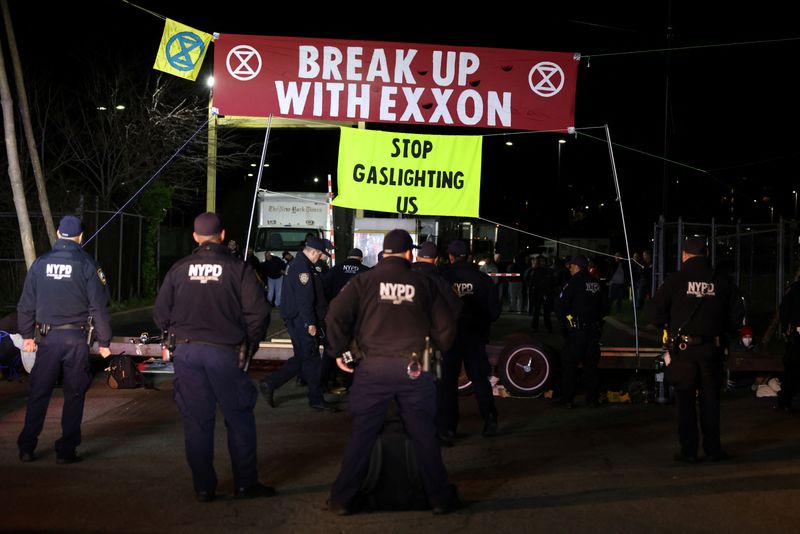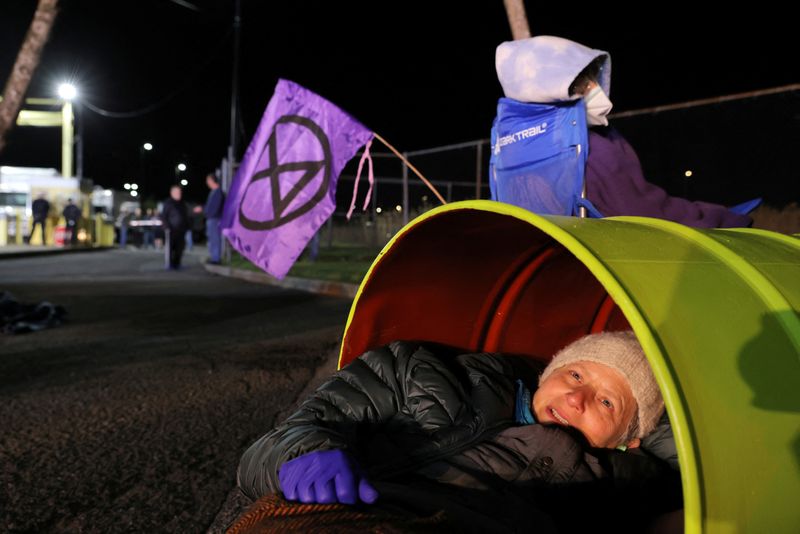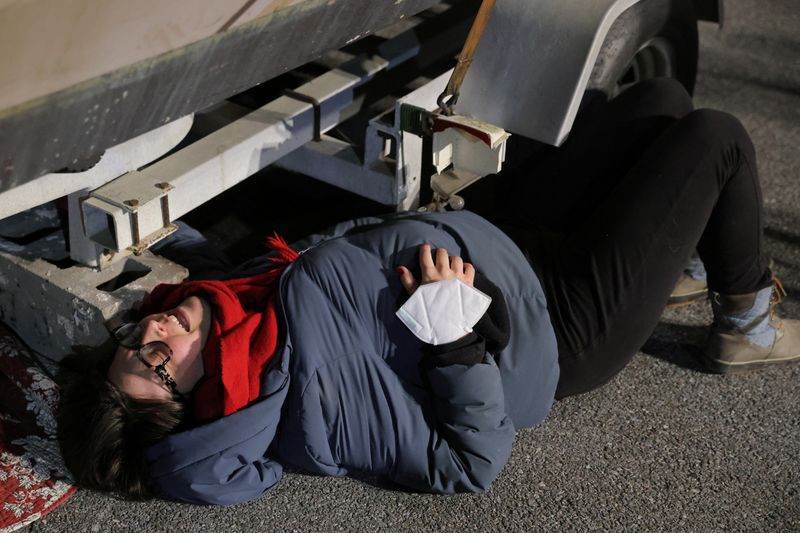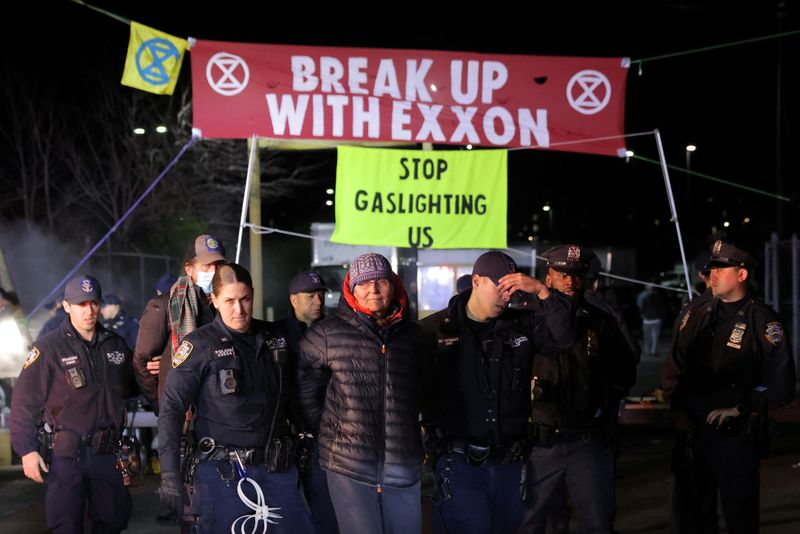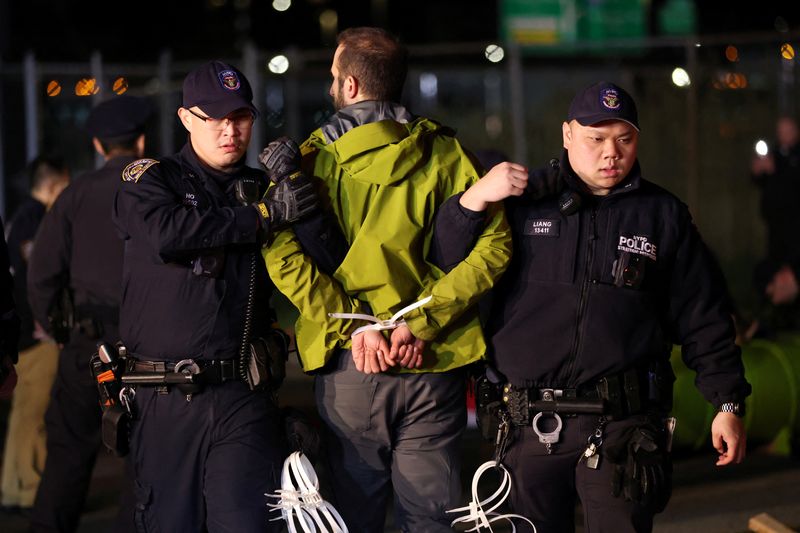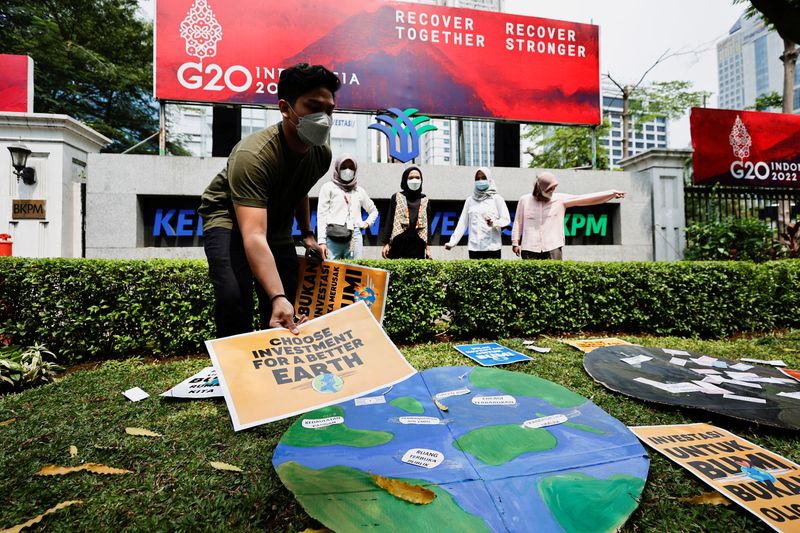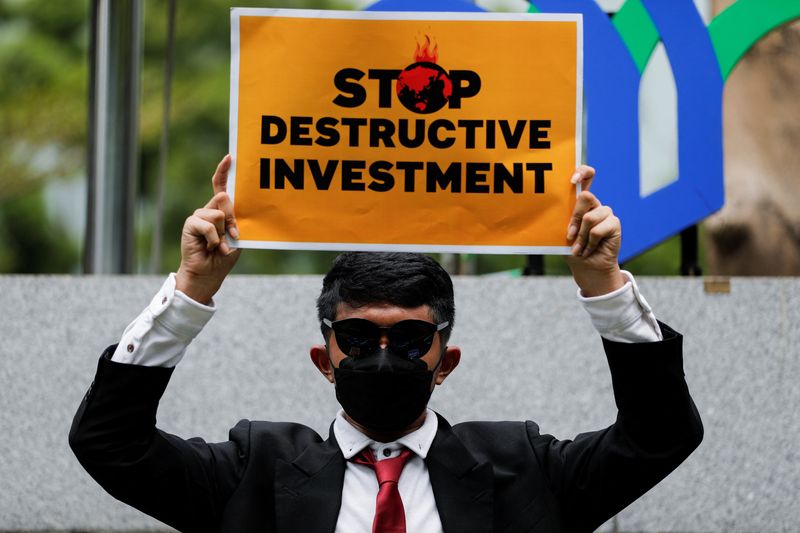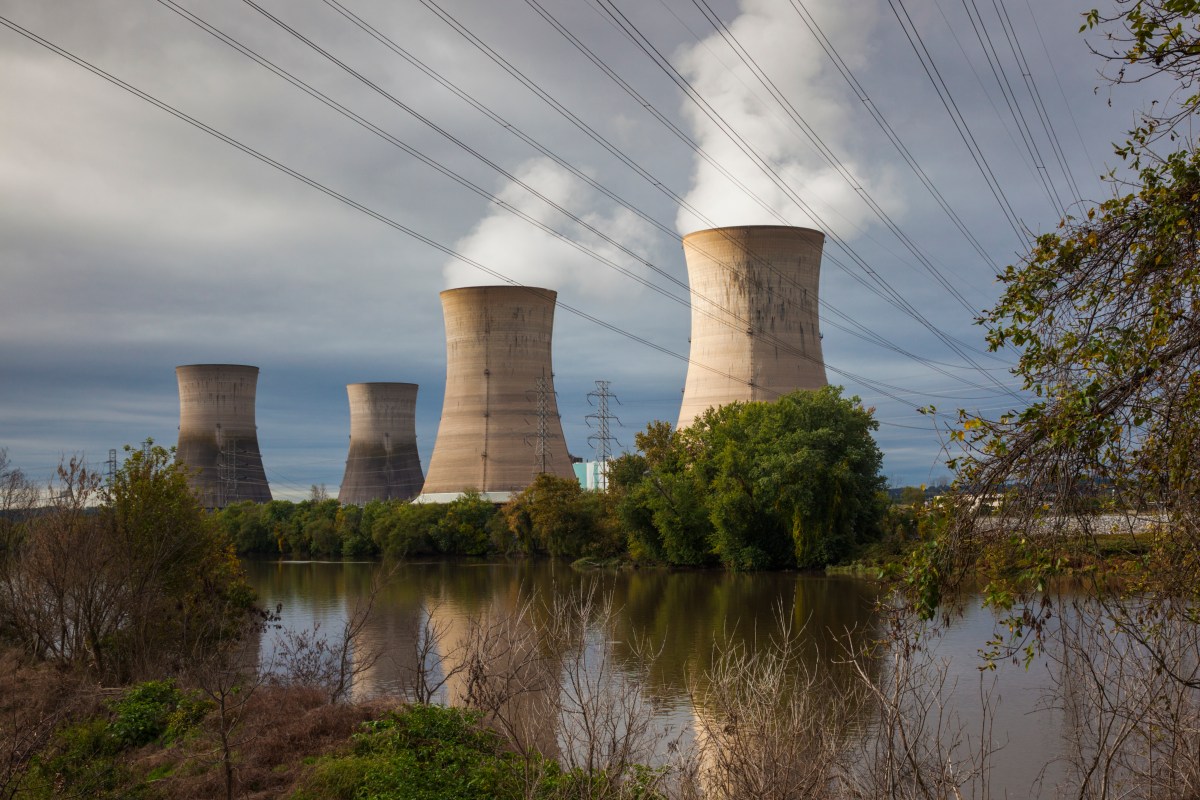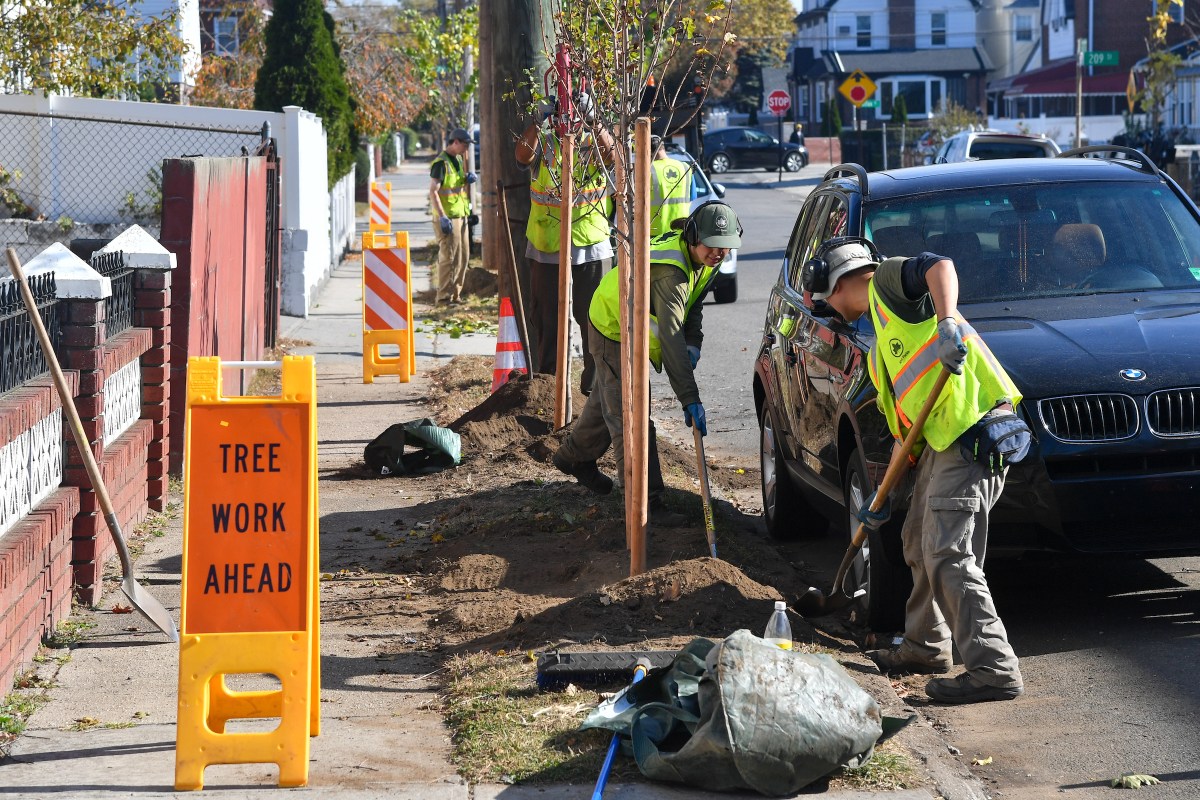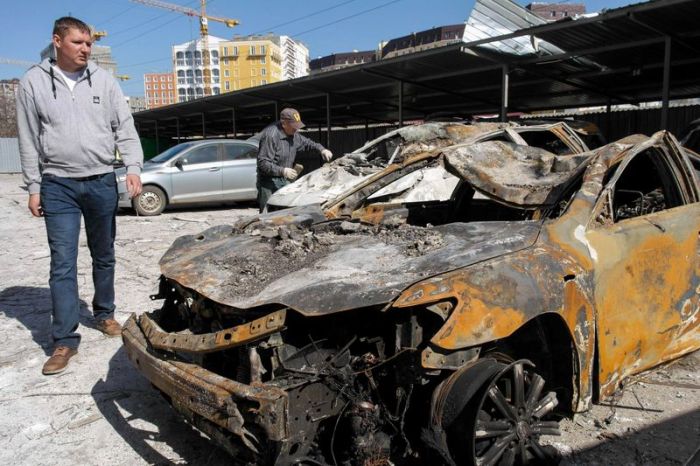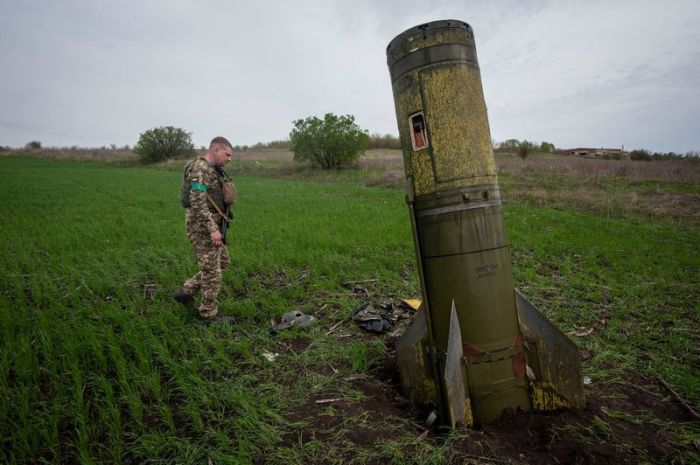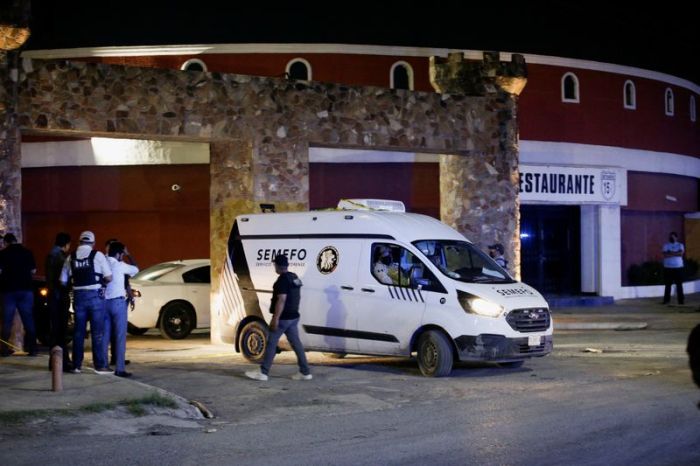BRUSSELS (Reuters) -Climate change campaigners held a wave of protests for Earth Day on Friday, pushing demands such as an immediate halt to European imports of Russian oil and gas, and an end to building fossil fuel infrastructure.
In Europe, activists in Berlin, Warsaw, Brussels and elsewhere targeted German government or embassy buildings. Germany is one of the European Union countries opposed to an embargo on Russian oil and gas, in response to Russia’s invasion of Ukraine, for fear of damage to their economy.
Around 50 activists outside Germany’s representation to the European Union in Brussels chanted “be brave like Ukraine”, as some lay on the floor pretending to be dead, wrapped in Ukraine flags and clothes painted to look bloodied.
Nastya Pavlenko, a Ukrainian activist at the Brussels protest, said money spent on Russian fossil fuels was fuelling both climate change and the war in Ukraine.
“There is no money worth the lives of kids that are dying right now in Ukraine and the lives of people who will be displaced and killed due to climate change,” she told Reuters.
About a dozen activists in the western Ukrainian city of Lviv also held a protest, with placards that spelled out “embargo now”. Parts of Lviv were hit this week by Russian missile strikes that killed seven people.
Natalia Gozak, head of the EcoAction civil society group and one of those protesting in Lviv, said European politicians need to choose between an embargo’s economic “inconveniences” and the deaths of Ukrainians.
In the United States, activists from the Extinction Rebellion group blockaded a New York newspaper printing facility to call for more media coverage of climate change.
Youth protesters also gathered in locations including Bangkok and Stockholm, where Swedish activist Greta Thunberg joined the school strike – a weekly protest she began as a solitary student in 2018 to demand urgent action to address climate change.
And in London, Extinction Rebellion activists dressed as oil slicks protested outside the offices of Vanguard, the world’s second largest asset manager and largest investor in coal, with more than $300 billion in fossil fuels. Activists said they wanted to draw attention to the company’s investments, which have largely “flown under the radar”.
The protests aim to amplify demands for climate action on Earth Day, when people worldwide celebrate and mobilise in support of protecting the environment. They come three weeks after a U.N. climate scientist report warned https://www.reuters.com/business/environment/now-or-never-only-severe-emissions-cuts-will-avoid-climate-extremes-un-report-2022-04-04 there is little time left for reining in greenhouse gas emissions sufficiently to prevent the worst impacts of climate change.
EUROPE UNDER PRESSURE
Since Moscow’s Feb. 24 invasion of Ukraine, the EU has spent more than 38 billion euros ($41.2 billion) on Russian fossil fuel imports.
The EU’s 27 countries have agreed to ban Russian coal imports from August, as part of sweeping sanctions also targeting Russian banks and business tycoons.
Countries including Italy and Germany have said they can wean themselves off Russian gas within a few years, and some European companies are already shunning Russian oil voluntarily to avoid reputational damage or possible legal troubles.
But the EU states are split over whether to impose an immediate and full embargo on Russian fuels, which Germany and Hungary say would hammer their economies. The EU gets 40% of its gas from Russia.
German chancellor Olaf Scholz on Friday said a gas embargo would not end the war.
“If (Russian President Vladimir) Putin were open to economic arguments, he would never have begun this crazy war,” he told Der Spiegel.
Warsaw-based climate activist Dominika Lasota, 20, said youth movement Fridays for Future would be changing its approach by holding smaller actions targeting specific governments opposed to fossil fuel sanctions, rather than organising the massive street protests that drew hundreds of thousands in past years and helped draw international attention to climate change.
“It’s wartime. We have to brace for a longer marathon,” Lasota said. “The war will not stop with the last bomb that will fall…, it will end once we end the [fossil fuel] industry and the system behind it.”
Ukrainian NGOs also sent a letter on Friday to Germany’s parliament demanding the country stop buying Russian oil and gas.
“Germany is one of its main consumers and thus is the main sponsor of war in Ukraine,” said the letter. “You only need some political will and humaneness to impose a full embargo on Russian oil and gas.”
($1 = 0.9221 euros)
(Reporting by Kate Abnett; Additional reporting by Gloria Dickie and Simon Jessop in London; Editing by Katy Daigle, Mark Heinrich, Emelia Sithole-Matarise and Diane Craft)

